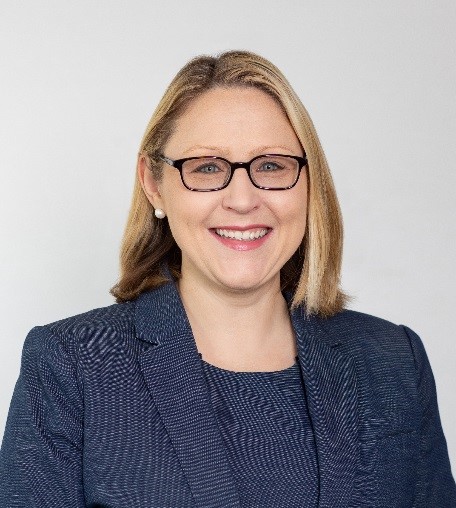Topic intro description here. Limited to 145 characters. Topic intro description here. Limited to 145 characters. Topic intro description here.
Why Digital Medicine Depends on Interoperability
Digital data are anticipated to transform medicine. However, most of today’s medical data lack interoperability: hidden in isolated databases, incompatible systems and proprietary software, the data are difficult to exchange, analyze, and interpret. This slows down medical progress, as technologies that rely on these data – artificial intelligence, big data or mobile applications – cannot be used to their full potential. In this article, we argue that interoperability is a prerequisite for the digital innovations envisioned for future medicine. We focus on four areas where interoperable data and IT systems are particularly important: (1) artificial intelligence and big data; (2) medical communication; (3) research; and (4) international cooperation. We discuss how interoperability can facilitate digital transformation in these areas to improve the health and well-being of patients worldwide
Webinar Presentation: The HIE Playbook for Overcoming Data Challenges During the Pandemic
HIEs play a critical role in facilitating care coordination and real-time data exchange, making them pivotal during a public health crisis. Learn how three leading HIEs are confronting various data challenges head on, including aggregation, patient identification, and interoperability for accurate reporting and tracking of COVID-19 in their communities. Our panelists will also share their emergency response efforts, lessons learned, best practices and existing/foreseeable challenges in managing and surveilling the outbreak.
You can watch the video here.
Speakers:
Kim Chaundy
Senior Director IT - External Customer Relations Geisinger Health System 
Kim currently serves as Senior Director of the Geisinger-owned Keystone Health Information Exchange, Inc. (KeyHIE), which is one of the oldest health information exchanges in the United States, serving over 6 million patients. Kim oversees and tracks all aspects of KeyHIE operations including, but not limited to: vendor management, participant outreach and implementation projects. Kim also directs Geisinger's IT Integration Systems Support team, responsible for Geisinger's Rhapsody infrastructure. Kim recently received her Masters of Business Administration degree from the University of Scranton in 2019.
Daniel Cidon
 Chief Technology Officer, NextGate
Chief Technology Officer, NextGate
Dan is responsible for shaping NextGate’s long-term technical vision and turning emerging technologies into leading-edge solutions. As a specialist in the intricate domain of pattern analysis and probabilistic matching algorithms, he brings innovative and pragmatic solutions to the company’s product portfolio. Dan is a credible industry thought leader, educator and mentor in the areas of healthcare interoperability, standards development and integration, frequently speaking and writing about the quality, operational and safety issues related to siloed and incomplete patient data in healthcare.Dan holds a Masters in Computer Science from the University of California, Davis and a B.S. in Mechanical Engineering from The University of Texas at Austin.
Cody Johanson
 Director of Operations at UHIN
Director of Operations at UHIN
Cody Johansen serves as Director of Operations at UHIN, an HIE and clearinghouse. His experience working with all levels of healthcare has helped him bridge the gap between healthcare and technology. He enjoys making the most complete information available to clinicians when treating patients. He holds a BS in Biology from BYU and an MPH in Health Services Administration from SDSU, where he was awarded the American Medical International Award and Foster G. McGaw Scholarship.
Bill Pearch
 CIO from HealtheConnect Alaska
CIO from HealtheConnect Alaska
As CIO of healtheConnect Alaska, Bill Pearch provides strategic IT leadership and oversight for the HIE to ensure its members meet changing regulatory, organizational, clinical and population health-related demands with capable and innovative technology.
Prior to joining healtheConnect in 2017, Bill served CIO roles at Bristol Bay Area Health Corp. and YKHC. His areas of expertise include IT Governance and HIPAA.
Kevin Conway

Data Integrity Manager,Nebraska Health Information Initiative (NEHII)
Kevin has over 30 years of experience in health-care planning, finance and information technology with Nebraska organizations. Prior to joining NEHII, he was Vice President, Health Information for the Nebraska Hospital Association, and worked at Blue Cross and Blue Shield of Nebraska.
WEBINAR: COVID-19 Impact: Addressing Capacity and Cashflow with Virtual Care
COVID-19 has highlighted the need for virtual care strategies and has set the tone for future care as it helps to solve many of the current and future challenges health systems face with capacity, value-based initiatives, and cashflow.
Remote Patient Monitoring solutions are maximizing care delivery value by delivering quality care beyond just reducing the number of patients in healthcare systems. Consumers are becoming accustomed to the ease, convenience, and benefits remote offerings deliver.
Join experts across the provider, regulatory, and technology space for a discussion on:
- How health systems are currently responding to COVID-19 with remote monitoring;
- How remote patient monitoring (RPM) can and will be used with telehealth services in the virtual care model of the near future;
- How the current and future policy and reimbursement changes will impact RPM and telehealth delivery;
- How health systems are using technology to create a strong revenue stream amidst financial uncertainty;
- Health systems’ immediate and long-term plans for RPM post-COVID-19 and ongoing demonstrations of scale and ROI.

Peter Rasmussen
Chief Clinical Officer Cleveland Clinic
American Well Joint Venture Physician at Cleveland Clinic
and former Medical Director of Distance Health
Peter A. Rasmussen, MD, is the Chief Clinical Officer of the Cleveland Clinic + American Well Joint Venture and the Medical Director of Digital Health at the Cleveland Clinic in Cleveland, Ohio. Rasmussen is also a practicing physician at the Cleveland Clinic. As Medical Director of Digital Health, he is charged with guiding the Clinic’s overall digital health strategy and implementation of their digital medicine portal “Express Care Online” which is the Clinic’s virtual portal for on-demand, scheduled and new remote consultation services.

Robert Jarren
Managing Member, Omega Concern
Robert Jarrin is the Managing Director of the Omega Concern and is based in Washington, D.C.. Jarrin’s areas of responsibility include federal wireless health policy, healthcare legislative affairs, FDA regulatory oversight of converged medical devices, FCC mobile health (mHealth) efforts, CMS telehealth and RPM reimbursement and ONC regulation of health information technology. Externally, Jarrin serves on the Innovation Advisory to the American College of Cardiology. He is an advisory member of the Digital Medical Payment Advisory Group for the American Medical Association. And, he is an adjunct professor at George Washington University and Georgetown University in D.C..

Drew Schiller
Co-Founder and CEO, Validic
Drew Schiller co-founded and serves as the Chief Executive Officer and Board Director at Validic, the leader in technology for personal health data and remote patient monitoring. Drew is a Board Member of the Consumer Technology Association (CTA) Health & Fitness Technology Division and a member of the CTA Board of Industry Leaders. Drew also contributes to advancing the industry through CTA policy efforts and his involvement with the CTA Health & Fitness Technology Standards. Drew serves on the Board for the eHealth Initiative (eHI) and participates in the eHI Policy Steering Committee.
eHI Virtual Lunch Series: A Conversation with Rachel Nelson from ONC
eHI Virtual Lunch Series: A Conversation with Rachel Nelson from ONC
As we all adjust to teleworking during the COVID-19 pandemic, eHI is working to bring members more virtual learning opportunities.
You’ve probably noticed that we’ve scheduled more webinars – and now we’re launching a series of short, virtual conversations with health IT leaders.
Join eHI CEO Jennifer Covich Bordenick for a conversation with Rachel Nelson, Branch Chief, Policy Analysis and Implementation, Regulatory Affairs Division at ONC as we launch this virtual series. Jennifer will be discussing the ONC information blocking final rule with Rachel and taking participant questions.
You can watch the full video here and download the slides below.
CMS & SHEIC - Health Information Exchange Organization Impact + SHEIC Annual Survey
A powerpoint presentation from David Kendrick, MD, MPH, CEO of MyHealth Access Network. He discusses the major points of health information exchanges. SHIEC's 2019 annual survey results are summarized.
Time for NIH to lead on data sharing
Time for NIH to lead on data sharing
The U.S. National Institutes of Health (NIH), the largest global funder of biomedical research, is in the midst of digesting public comments toward finalizing a data sharing policy. Although the draft policy is generally supportive of data sharing (1), it needs strengthening if we are to collectively achieve a long-standing vision of open science built on the principles of findable, accessible, interoperable, and reusable (FAIR) (2) data sharing. Relying on investigators to voluntarily share data has not, thus far, led to widespread open science practices (3); thus, we suggest steps that NIH could take to lead on scientific data sharing, with an initial focus on clinical trial data sharing.
The full Science Magazine article can be downloaded below.
Webinar Presentation: Breaking Down the Interoperability and Information Blocking Final Rules
The Department of Health & Human Services (HHS) just released two major regulations on interoperability and information blocking that will shape the health technology sector for years to come. The rules will have also have a major impact on data privacy policy, the future of value-based care, and regulation of health technology.
Join experts from industry and the administration to learn more on specific provisions of the final regulations, as well as the potential impacts on patients, providers, technology developers, and payers.
Presentation Slides and a link to the PwC report can be found at the bottom of this page.
Speakers:
Leigh C. Burchell -
Health Technology Policy Expert, Allscripts
Leigh directs the Government Affairs function for Allscripts, including legislative advocacy and regulatory interpretation and comment. Her role includes advocating for the company’s 180,000 physician clients, 1,500 hospitals and 13,000 post-acute agencies to ensure that new legislation and administrative policies are supportive of the most efficient and scalable paths towards improvements in the healthcare industry. She has been with Allscripts for more than fourteen years.
Lisa Gallagher -
Managing Director, PwC
 Lisa is currently Managing Director in PwC’s Healthcare Industries Advisory Cybersecurity and Privacy practice. She is responsible for business development, client relations and overall project delivery in the PwC US Privacy, Security and Forensics practice, with a focus on healthcare providers and financial services companies. Ms. Gallagher has over 30 years of professional experience in systems engineering, hardware design, and software development, as well as healthcare privacy, security, and public policy. Ms. Gallagher has a Bachelor of Science degree in Electrical Engineering, has been a certified trust technology evaluator (NSA), and is a Certified Information Security Manager (CISM) (ISACA). She is also a Certified Professional in Healthcare Information and Management Systems (CPHIMS).
Lisa is currently Managing Director in PwC’s Healthcare Industries Advisory Cybersecurity and Privacy practice. She is responsible for business development, client relations and overall project delivery in the PwC US Privacy, Security and Forensics practice, with a focus on healthcare providers and financial services companies. Ms. Gallagher has over 30 years of professional experience in systems engineering, hardware design, and software development, as well as healthcare privacy, security, and public policy. Ms. Gallagher has a Bachelor of Science degree in Electrical Engineering, has been a certified trust technology evaluator (NSA), and is a Certified Information Security Manager (CISM) (ISACA). She is also a Certified Professional in Healthcare Information and Management Systems (CPHIMS).
Alice Leiter -
Vice President and Senior Counsel, eHealth Initiative
 Alice is a health regulatory lawyer with a specialty in health information privacy law and policy. She previously worked as a Senior Associate at the law firm Hogan Lovells, where she worked with clients on Medicare and Medicaid pricing and reimbursement. Alice spent several years as policy counsel at two different non-profit organizations, the National Partnership for Women & Families and the Center for Democracy & Technology. She currently sits on the DC HIE Policy Board, as well as the boards of Beauvoir School, Educare DC, and DC Greens, the latter of which she chairs. She received her B.A. in human biology from Stanford University and her J.D. from the Georgetown University Law Center. Alice and her husband, Michael, live in Washington, D.C. with their four children.
Alice is a health regulatory lawyer with a specialty in health information privacy law and policy. She previously worked as a Senior Associate at the law firm Hogan Lovells, where she worked with clients on Medicare and Medicaid pricing and reimbursement. Alice spent several years as policy counsel at two different non-profit organizations, the National Partnership for Women & Families and the Center for Democracy & Technology. She currently sits on the DC HIE Policy Board, as well as the boards of Beauvoir School, Educare DC, and DC Greens, the latter of which she chairs. She received her B.A. in human biology from Stanford University and her J.D. from the Georgetown University Law Center. Alice and her husband, Michael, live in Washington, D.C. with their four children.
Danielle Lloyd -
Senior Vice President, AHIP
 Danielle Lloyd is the senior vice president of private market innovations and quality initiatives for Clinical Affairs, America’s Health Insurance Plans (AHIP) in Washington, DC. Danielle is responsible for assessing insurance market trends and developing policy in the areas of emerging payment models, quality measurement and health information technology interoperability. She is from Los Angeles, has a bachelor’s degree from the University of Pennsylvania and has a master’s degree in public health from the University of California, Berkeley.
Danielle Lloyd is the senior vice president of private market innovations and quality initiatives for Clinical Affairs, America’s Health Insurance Plans (AHIP) in Washington, DC. Danielle is responsible for assessing insurance market trends and developing policy in the areas of emerging payment models, quality measurement and health information technology interoperability. She is from Los Angeles, has a bachelor’s degree from the University of Pennsylvania and has a master’s degree in public health from the University of California, Berkeley.
Colby Tiner -
Digital Health and Cardiovascular Systems of Care Policy Analyst, AHA
Colby is a Policy Analyst at the American Heart Association, leading the association’s portfolios on health technology, stroke, surveillance, workplace health, and social determinants of health. He also serves as a policy advisor for the Association’s Center for Health Technology and Innovation, a role in which he works with volunteer academics, manufacturers, and providers to develop the Association’s burgeoning policy and research agendas in the digital health space. Colby also represents the AHA in various external digital health coalitions. Prior to joining the association, he ran political campaigns in his home state of Texas and served as an intelligence analyst in the United States Air Force.
Crystal Yednak -
Senior Manager, PwC
 Crystal is a Senior Manager with PwC’s Health Research Institute and leads HRI’s analysis of regulatory and legislative affairs impacting providers and payers. In 20 years as a journalist whose work has appeared in major publications such as the The New York Times, the Chicago Tribune and Crain’s Chicago Business, Yednak reported on health policy and its impact from a variety of perspectives. She followed state government efforts to expand Medicaid, profiled the winners and losers in a shifting provider landscape and chronicled patient experiences in the healthcare system. Prior to joining PwC, Yednak conducted research and wrote thought leadership for a number of companies and nonprofit organizations. Yednak is a graduate of Northwestern University.
Crystal is a Senior Manager with PwC’s Health Research Institute and leads HRI’s analysis of regulatory and legislative affairs impacting providers and payers. In 20 years as a journalist whose work has appeared in major publications such as the The New York Times, the Chicago Tribune and Crain’s Chicago Business, Yednak reported on health policy and its impact from a variety of perspectives. She followed state government efforts to expand Medicaid, profiled the winners and losers in a shifting provider landscape and chronicled patient experiences in the healthcare system. Prior to joining PwC, Yednak conducted research and wrote thought leadership for a number of companies and nonprofit organizations. Yednak is a graduate of Northwestern University.
PwC Report : Beyond IT: Why the regulatory push toward interoperability requires whole organizational responses from providers, payers
This PwC report discusses the regulatory push by CMS and the Office of the National Coordinator for Health Information Technology to shift the way the healthcare system shares data, moving from a system where healthcare organizations may share data under HIPAA to one where they must share data. This has immediate and long-term implications for payers and providers faced with a healthcare infrastructure not built for interoperability. Read more at the link below!
WEBINAR: Breaking Down the Interoperability and Information Blocking Final Rules
The Department of Health & Human Services (HHS) just released two major regulations on interoperability and information blocking that will shape the health technology sector for years to come. The rules will have also have a major impact on data privacy policy, the future of value-based care, and regulation of health technology.
Join experts from industry and the administration to learn more on specific provisions of the final regulations, as well as the potential impacts on patients, providers, technology developers, and payers.
Speakers:
FHIR Fever Is Catching On In Healthcare
FHIR Fever Is Catching On In Healthcare
It's been almost two decades since the nonprofit Health Level Seven International (HL7) created the FHIR standard, now on its fourth release. The forces of government regulation, consumer demand, competition and the journey to value-based care are creating new pressure on the healthcare industry to embrace interoperability, a Deloitte report says, with FHIR emerging as the common language. Open standards to link diagnostic, clinical health and certain administrative data can reduce medical errors, eliminate opportunities for fraud and bring down the data siloes that account for so much waste.
The full Forbes article can be viewed at this link.
